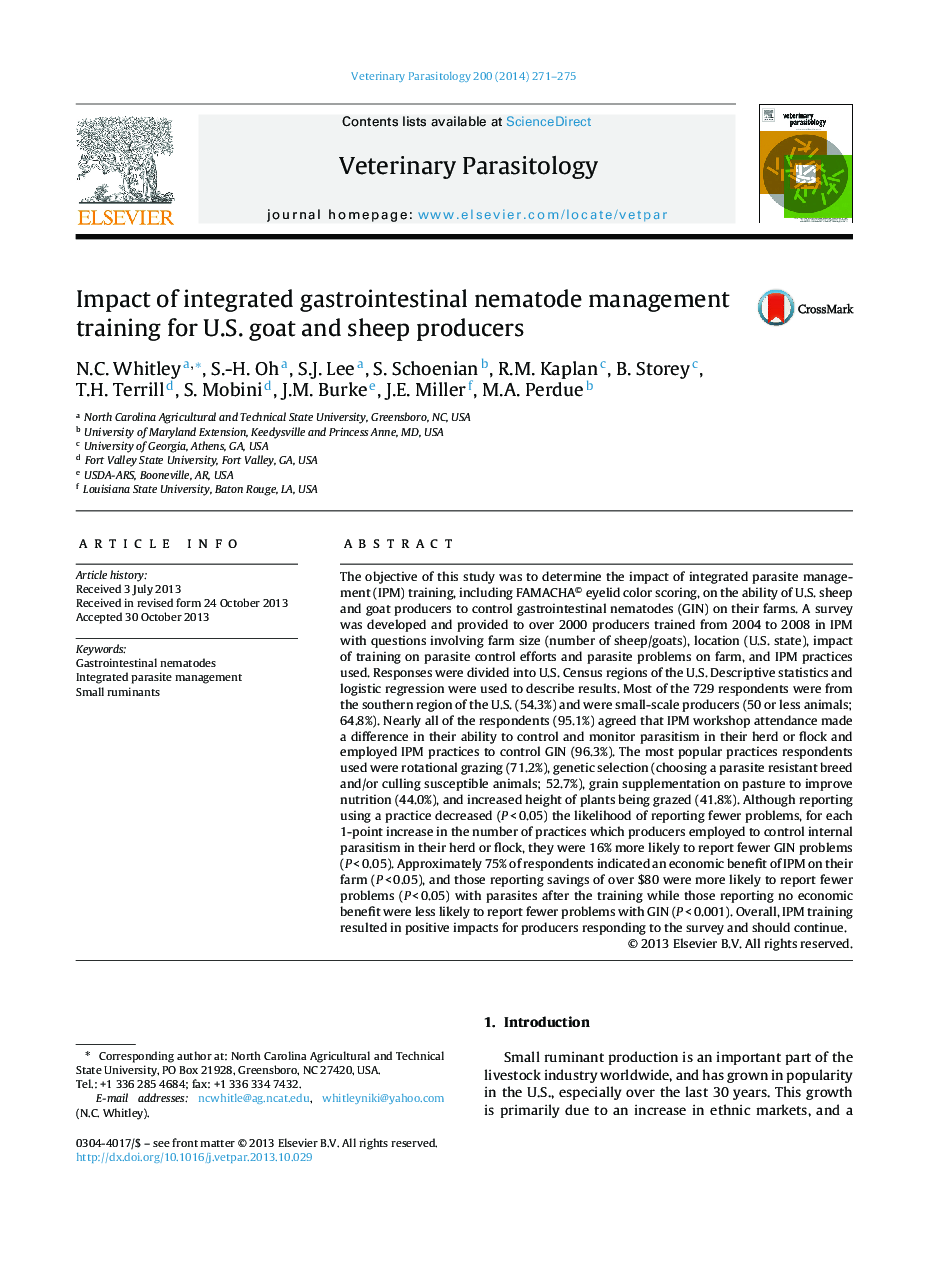| کد مقاله | کد نشریه | سال انتشار | مقاله انگلیسی | نسخه تمام متن |
|---|---|---|---|---|
| 2470000 | 1555690 | 2014 | 5 صفحه PDF | دانلود رایگان |
The objective of this study was to determine the impact of integrated parasite management (IPM) training, including FAMACHA© eyelid color scoring, on the ability of U.S. sheep and goat producers to control gastrointestinal nematodes (GIN) on their farms. A survey was developed and provided to over 2000 producers trained from 2004 to 2008 in IPM with questions involving farm size (number of sheep/goats), location (U.S. state), impact of training on parasite control efforts and parasite problems on farm, and IPM practices used. Responses were divided into U.S. Census regions of the U.S. Descriptive statistics and logistic regression were used to describe results. Most of the 729 respondents were from the southern region of the U.S. (54.3%) and were small-scale producers (50 or less animals; 64.8%). Nearly all of the respondents (95.1%) agreed that IPM workshop attendance made a difference in their ability to control and monitor parasitism in their herd or flock and employed IPM practices to control GIN (96.3%). The most popular practices respondents used were rotational grazing (71.2%), genetic selection (choosing a parasite resistant breed and/or culling susceptible animals; 52.7%), grain supplementation on pasture to improve nutrition (44.0%), and increased height of plants being grazed (41.8%). Although reporting using a practice decreased (P < 0.05) the likelihood of reporting fewer problems, for each 1-point increase in the number of practices which producers employed to control internal parasitism in their herd or flock, they were 16% more likely to report fewer GIN problems (P < 0.05). Approximately 75% of respondents indicated an economic benefit of IPM on their farm (P < 0.05), and those reporting savings of over $80 were more likely to report fewer problems (P < 0.05) with parasites after the training while those reporting no economic benefit were less likely to report fewer problems with GIN (P < 0.001). Overall, IPM training resulted in positive impacts for producers responding to the survey and should continue.
Journal: Veterinary Parasitology - Volume 200, Issues 3–4, 1 March 2014, Pages 271–275
